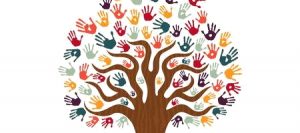
TRAMIG Project Outcomes

Tramig responds to the specific objective of the Erasmus+ call (Key Action 3: Support for policy reform) “supporting the inclusion of newly arrived migrants in good quality education, including by assessing knowledge and validating prior learning” by enabling the training programs of community interpreting and intercultural mediation to introduce in their training also the languages of the newly arrived migrants. In order to include newly arrived migrants as teachers or assistant trainers into the training programs, the program has first developed the tools to validate and test the prior knowledge of newly arrived migrants for the possible career in the training of intercultural mediation and community interpreting.

In the first stage: TRAMIG opened up possibilities for the newly arrived migrants with corresponding competences to find employment as teachers or trainers in community interpreting and intercultural mediation programs and thus enter the labour market of the host country.
In the second stage: by enabling the provision of training in languages of newly arrived migrants, TRAMIG opened up possibilities for the newly arrived migrants to become community interpreters or intercultural mediators and thus enter the labour market of the host country.
The project has thus responded to the needs of:
- Newly arrived migrants that have difficulties entering the work market in the host country and accessing public services;
- Higher education institutions and other educational and public health institutions that provide training for intercultural mediators and community interpreters and that face the problem of constantly changing language demand in a particular host country and the lack of skilled teachers to be used on such programs;
- Host societies that will be able to provide high-quality language and cultural support to newly arrived migrants and enable them the equal access to social services;
- Host societies that will be able to reduce the costs in various fields of social services: for example, in healthcare where previous studies indicate that high-quality language and cultural support shortens a hospital stay, reduces readmission rates and thus considerably lowers healthcare costs.






